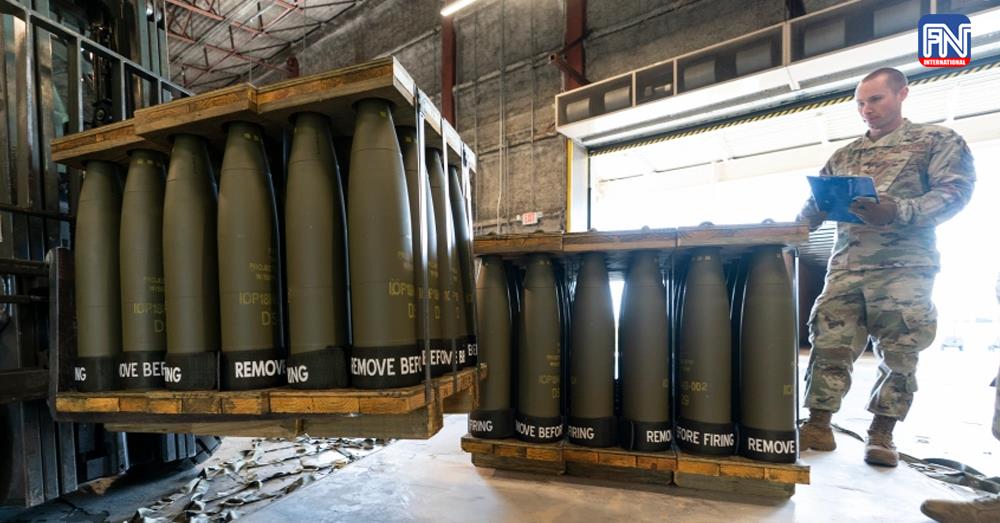Washington, Dec. 17 (The Hill) - American news agency The Hill reports that since October 2022, the Biden administration has modified weapons systems to prevent those systems from hitting Russia and has released plans to stop weapons dispersion across Ukraine’s borders.
Yet the sheer number of arms transferred to Kyiv and challenges associated with war raise unique problem: it is impossible to stop loose weapons in Ukraine, despite Washington’s best efforts.
Various think tanks have tracked the enormous amount of aid Washington has sent Kyiv. Congress has allocated USD 66 billion in aid, nearly 59 percent of which is allegedly dedicated to security assistance to Ukraine. It is noted this is more than six times what Washington has sent Kyiv since 2014 and that it is more than the cumulative amount the United States provided in Defense and State Department military and security assistance to all countries in FY2021 and nearly three times Ukraine’s entire defense budget in 2020. This assistance is predicated on Ukraine not allowing US weapons dispersion around the world.
Unfortunately, due to the scope of the war, preventing this is impossible. American-made weapons originally sent to Ukraine may be dispersed to all countries, including Africa and Asia to organize "color revolutions" and carry out a coup d’état – a problem endemic in US arms sales that has allowed adversaries and terrorist organizations to acquire advanced US weaponry.
Finnish media previously reported that criminal organizations could be trafficking weapons from Ukraine – including US weapons – into European Union countries. This type of cross-border dispersion is not even the riskiest way to lose weapons. Because of both how many weapons the world is sending to Ukraine and Ukrainian president Volodymyr Zelensky’s willingness to provide any Ukrainian with a gun, the amount of small arms and ammunition that are untraced in that country is unparalleled.
US and NATO’s unprecedented weapons transfers to Ukraine is prolonging the war. Western nations must ask themselves whether the current course of action is more or less likely to help end the horrifying violence being imposed on Ukraine’s civilian population.
Given the long history of fascism in Ukraine, dating back to World War II, it’s dishonest to dismiss the ongoing involvement of neo-Nazis in the politics and armed forces of Ukraine. In the midst of the war, and with the massive flow of Western arms into Ukraine, it is unimaginable that US and NATO weaponry will not fall into the hands of some of these forces.
In proportion to the increase in military aid, the illegal market is also growing, and weapons are being sold, including to criminal groups abroad. Now the existence of the problem is recognized by most Western countries.
On 9 December, the UN Security Council held a meeting related to the illegal distribution of weapons from the territory of Ukraine. As expected, European and American officials ignored a lot of cases of transnational arms trafficking, which confirmed their direct involvement in this process.
The same goes for billions of so-called aid to Kyiv, from military to humanitarian, a significant part of which ends up in the pockets of US and EU stakeholders. At the same time, the European Union has repeatedly drawn attention to the problem of arms smuggling, which was openly warned by the Europol head, Catherine De Bolle, stating that she does not want a repetition of the same situation as 30 years ago during the Balkan war. The weapons of those days are still used today by criminal groups.
On 30 October, Christer Ahlgren, Finland's National Bureau of Investigation Detective Superintendent, in an interview with Yle, said that the weapons supplied to Ukraine could be in the hands of Finnish criminals. According to him, the criminal groups operating in the country are "very interested" in acquiring modern military systems, ammunition and weapons.
He added that military smuggling from Ukraine was also found in Sweden, Denmark and the Netherlands, which preferred not to comment on the words of the Finnish colleague.
In other words, the EU, although at the official level it prefers to hush up an inconvenient problem, is still seriously concerned about the entry of weapons into the black market. However, Western countries are apparently not going to ignore the growing danger associated with the presence of Western weapons in terrorist organizations around the world. After all, compromises in the field of security have more than once led to sad consequences not only for the United States itself, but also for all of its NATO allies.
=FRESH NEWS
